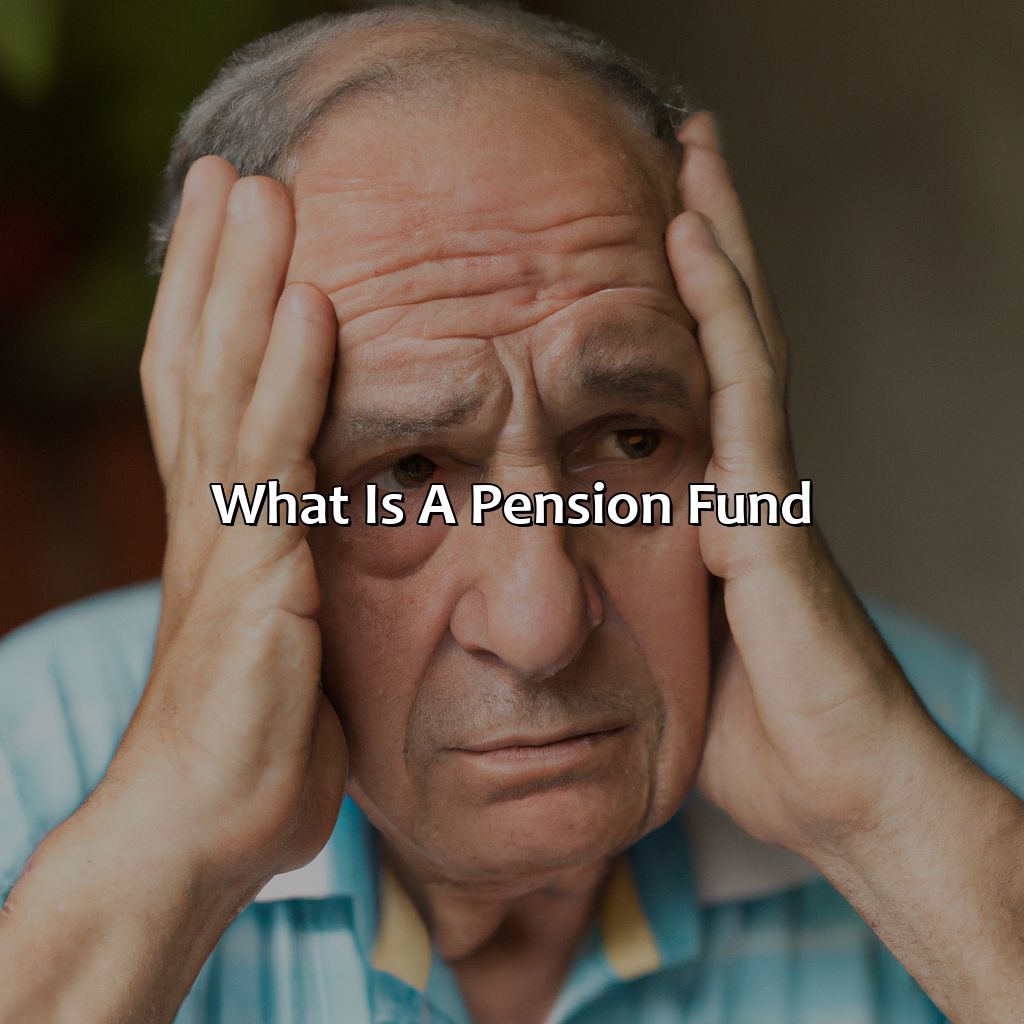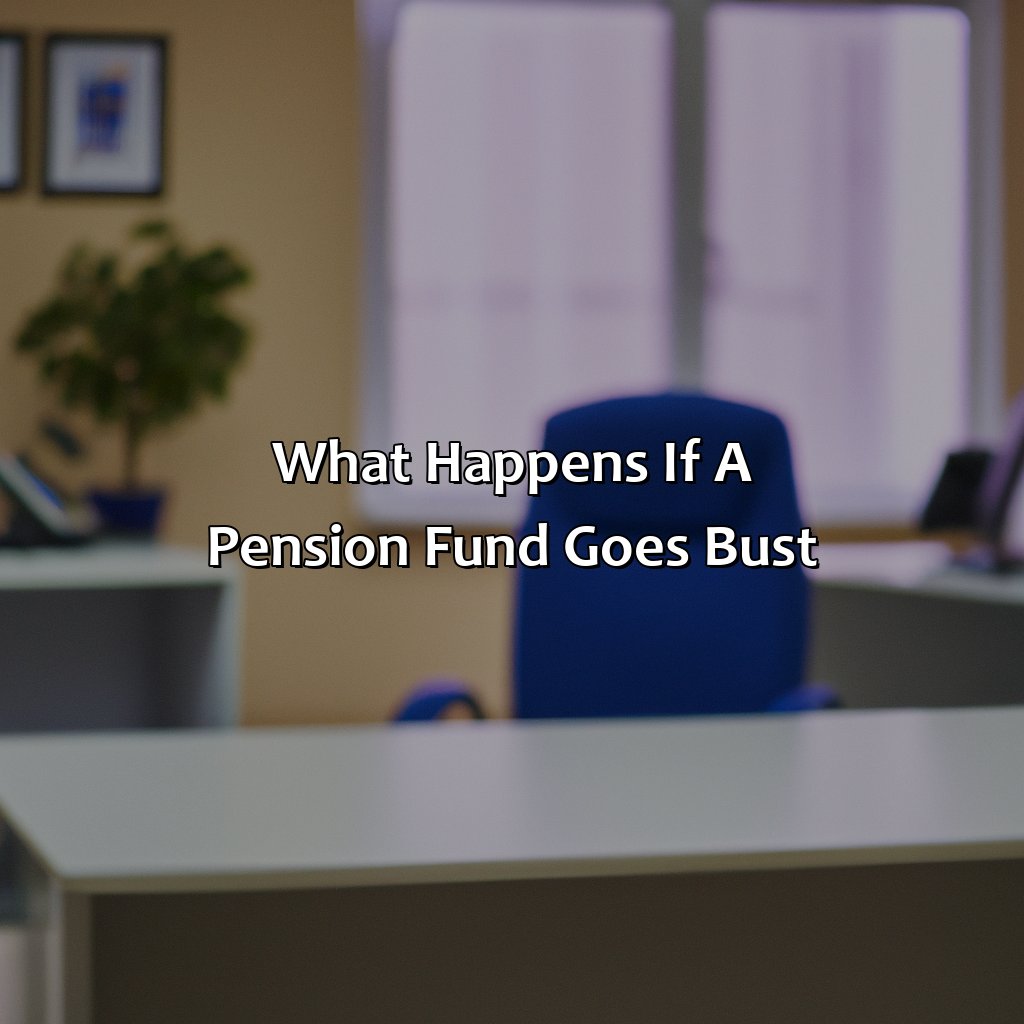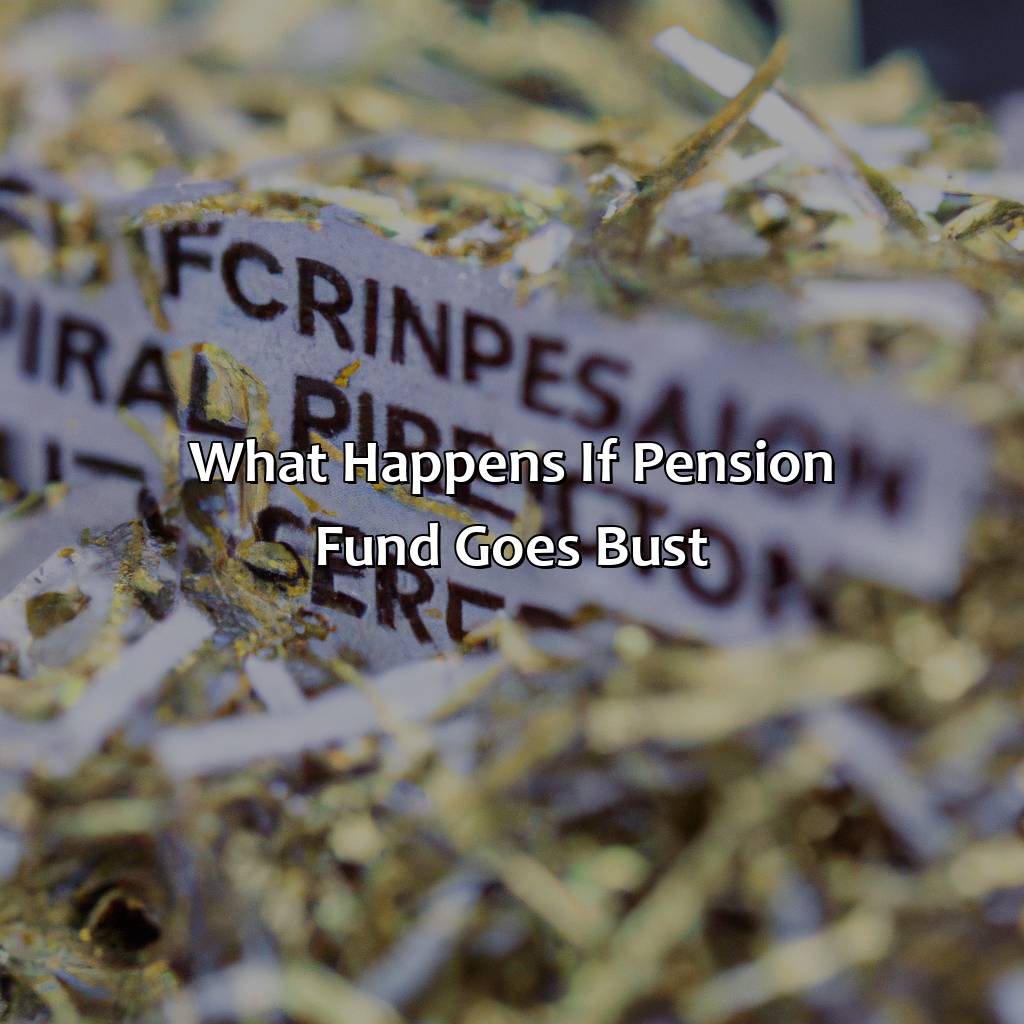What Happens If Pension Fund Goes Bust?
Key Takeaway:
- A pension fund is a retirement savings plan that employers and employees contribute to throughout an individual’s career. It is important for individuals to understand the role a pension fund plays in their retirement planning.
- Pension fund failure can occur due to various reasons such as mismanagement, economic downturns, and insufficient funding. The consequences of pension fund failure can be detrimental to plan participants, including loss of retirement savings and reduced benefits.
- However, legal protections exist for pension plan participants, such as the Pension Benefit Guaranty Corporation (PBGC), which insures pension benefits for participants in the event of plan termination or bankruptcy. It is important for individuals to be aware of their rights and options in the event of pension fund failure.
Are you concerned about the security of your pension? With pension funds facing big risks, it’s important to know what to do if it goes bust. You need to be aware of the potential consequences and how to use your pension money wisely. So, let’s explore the realities of a pension fund going bust.
What is a pension fund?
Want to know what happens if a pension fund goes bust? To answer that, you must understand the importance of pension funds. This section will explain what a pension fund is. We’ll also discuss why it’s important for retirement planning. Plus, we’ll cover the sub-sections that delve into the significance of pension funds.

Image credits: retiregenz.com by Joel Duncun
Definition and importance of pension funds
Pension funds are financial vehicles that collect and manage retirement savings for individuals. These funds are an essential tool in ensuring a financially secure retirement and provide benefits to workers in various industries. With the rise of defined-contribution plans, individuals bear the responsibility of managing their retirement savings, highlighting the importance of pension funds in supplementing their savings.
Pension funds invest assets contributed by both employers and employees to generate returns. Investments may include stocks, bonds, and real estate, among others. The goal is to provide retirement benefits for plan participants once they retire. You might wonder what percentage of the stock market is owned by pension funds as they invest in stocks and other assets for generating returns.
If you are wondering how to find your pension information, it is important to know that if a pension fund goes bust or fails to meet its obligations, retirees’ benefits may be at risk. The Pension Benefit Guaranty Corporation (PBGC) provides insurance for some private pension plans and ensures that participants receive their promised retirement benefits if the employer can’t fulfill its pension obligations.
Investing in well-managed pension funds with diversified investment portfolios could mitigate financial risks when planning for retirement. Participants could also negotiate higher employer contribution rates to increase their retirement benefits or set up an individual retirement account (IRA) as another savings avenue. To understand more about how a pension fund works, it’s important to research and educate yourself on the different retirement options available.
When it comes to a pension fund going bust, the only thing guaranteed is the sudden urge to break out in hives.
What happens if a pension fund goes bust?
Investigate pension fund busts! Causes, effects, and legal protections.
Causes? What leads to these failures?
Effects? How do they affect plan participants?
Legal protections! How can they help protect their interests?
Dive into the answers!

Image credits: retiregenz.com by Adam Woodhock
Causes of pension fund failure
The factors that lead to the collapse of a pension fund are many. One reason is the overall poor performance of investments or financial mismanagement by the fund’s managers. Demographic changes like longevity, dropping birth rates can increase long-term costs. Lastly, regulatory changes such as tax adjustments can adversely impact the fund.
As investments are an integral part of pension funds, lackluster performance creates a domino effect on payouts that lead to severe crises. Pension funds’ trustees may also make poor choices in investment products and fail to notice potential risks in new asset classes. Due to extensive legislation concerning their operations, including limitations on investments and diversification policies, they’re often highly-sensitive vehicles susceptible to volatility. If you’re wondering about what the UK state pension is, check out our guide!
Diligence from senior leadership on the board and competent decision-making processes can help secure a pension fund’s future prosperity through times of uncertainty.
One example illustrates this point; after experiencing significant losses during the COVID-19 pandemic due to bad bets in interest rates and corporate bonds, CalPERS had been forced to reduce expected returns from its portfolio substantially and seek legislative approval for substantial increases in funding from employers who sponsor it under California law.
Looks like those retirement dreams just got tossed into the same dumpster as my dignity after that office Christmas party.
Effects on pension plan participants
Pension plan participants face significant consequences if a pension fund goes bankrupt or insolvent. Funds may have to cut their benefits or terminate the plan altogether, leaving retirees and workers facing financial hardships. The potential loss of income from a lifetime of work can be devastating.
In such cases, the Pension Benefit Guaranty Corporation (PBGC) plays a critical role in protecting pension plan participants by stepping in and taking over the pension plan. However, the PBGC only guarantees a limited amount of benefits, which means some individuals could still lose a significant portion of their retirement savings.
It is worth noting that not all pension plans are covered by the PBGC, and those that are may not receive full compensation for their losses. It is essential to understand how a pension is paid out and the associated risks before committing to any plan fully.
Recently, several high-profile bankruptcies have left many former employees and retirees without promised pension benefits. For example, thousands of Sears employees lost their pensions when the company filed for bankruptcy in 2018. Such events highlight the importance of monitoring your pension contributions and ensuring that you are covered by proper insurances or guarantees in case of adverse events. Find out when Illinois pension will run out of money to plan for your retirement.
Overall, it is essential to plan for unforeseen circumstances such as company bankruptcies when considering long-term retirement investments such as pensions. If you are an employee wondering which of the following IRAs provides a pension for employees, it is important to carefully research and understand the options available to you to make sure you have a secure retirement plan.
Legal protections for pension plan participants: When all else fails, just cross your fingers and hope for the best.
Legal protections for pension plan participants
The law provides critical safeguards and measures to protect pension plan participants in the unfortunate event of a pension fund going bankrupt. These legal protections ensure that plan participants get their deserved benefits and keep their pensions secure.
In case a pension fund goes bust, the Pension Benefit Guaranty Corporation (PBGC) generally steps in and takes over. PBGC is a government-sponsored entity that insures most private defined benefit pension plans in the United States. The corporation makes payments to retirees when it takes over a plan that’s unable to pay benefits at promised levels. If you want to learn more about who manages pension funds, check out our article.
It’s worth noting that these legal protections do have limits, particularly if you exceed maximum financial thresholds. In such cases, retired individuals may receive less than what they had been expecting initially.
A few years ago, Troy, Michigan-based Delphi Corp., an automotive industry supplier with thousands of hourly workers spread across multiple states in the US, experienced bankruptcy and froze its pensions for more than 20,000 hourly employees. However, these workers’ pensions were protected by the PBGC program. How many pension plans are there in the US?
Five Facts About What Happens If Pension Fund Goes Bust:
- ✅ When a pension fund goes bust, retirees may lose some or all of their retirement savings. (Source: The Balance)
- ✅ Pension funds are backed by the Pension Benefit Guaranty Corporation (PBGC), but not all private pensions are covered by the insurance program. (Source: Investopedia)
- ✅ In some cases, pension fund participants may be entitled to benefits from other sources, such as Social Security or other retirement savings accounts. (Source: AARP)
- ✅ Employers are required by law to fund their pension plans, and failure to do so could lead to legal action from both the government and employees. (Source: U.S. Department of Labor)
- ✅ In the event of a pension fund’s failure, the government may consider a bailout to prevent catastrophic consequences for retirees and the economy as a whole. (Source: Forbes)
FAQs about What Happens If Pension Fund Goes Bust?
What happens if a pension fund goes bust?
If a pension fund goes bust, it means that the fund is unable to pay the promised pensions to its beneficiaries. This can happen due to various reasons such as poor investment performance, mismanagement of funds, or economic recession. In such a situation, the pensioners may lose their savings and have no guarantee of receiving their expected retirement benefits.
What happens to my pension if my pension fund goes bust?
If your pension fund goes bust, you may lose some or all of your retirement savings. However, this will depend on the laws and regulations in your country. In some cases, the government may step in to provide some compensation to the affected pensioners, but this is not always guaranteed.
How can I protect my pension if my pension fund goes bust?
You can protect your pension by diversifying your investments and choosing a reputable pension fund. It is also important to regularly review the financial performance of your chosen pension fund and stay informed about any changes or developments that may affect your retirement savings.
What are the signs that my pension fund may be at risk of going bust?
The signs that your pension fund may be at risk of going bust include poor investment performance, high management fees, and lack of transparency in the fund’s operations. You should also be cautious if your pension fund invests heavily in a single sector or geography, as this can increase the risk of losses.
What should I do if my pension fund goes bust?
If your pension fund goes bust, you should seek professional advice from a financial advisor or lawyer. They can help you understand your options and guide you through the legal process of recovering any lost retirement savings.
Can a pension fund’s assets be used to pay off creditors if it goes bankrupt?
It depends on the laws and regulations in your country. Generally, pension funds are considered separate legal entities and their assets cannot be used to pay off creditors if they go bankrupt. However, there may be exceptions to this rule in certain cases, such as if the pension fund’s assets were improperly managed or used for illegal activities.
